Behind the News
Behind the News: All the backstories to our major news this week
Published
1 year agoon
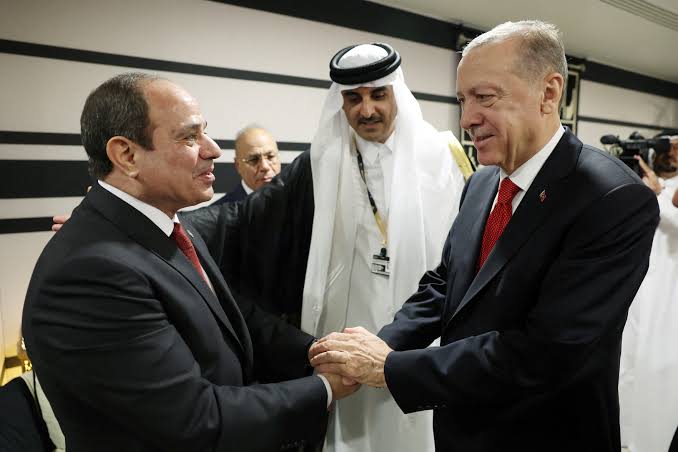
Over the past week, there were lots of important stories from around the African continent, and we served you some of the most topical ones.
Here is a rundown of the backstories to some of the biggest news stories in Africa that we covered during the week:
Egypt and Turkey intensify efforts to close diplomatic gap
Beyond unpleasant news of the devastating effects of an earthquake in Morocco, and a flood accident in Libya which has killed and displaced thousands, there was something to cheer about from the Arab League this week as “sworn enemies,” Turkey and Morocco gave hope for reconciliation.
Turkey’s President, Tayyip Erdogan discussed bilateral ties and energy cooperation with Egyptian President, Abdel Fattah al-Sisi on the sidelines of the G20 summit in the Indian capital of New Delhi on Sunday.
After 10 years of animosity, the meeting was the most recent diplomatic effort to repair relations between Egypt and Turkey. The first step in recent times to strengthen their diplomatic ties was the assignment of ambassadors to each other’s capitals in July.
The conflict between Erdogan and Sisi began when the latter took office following the Egyptian army’s removal of Muslim Brotherhood President, Mohamed Morsi in 2013 in the wake of significant public protests. Erdogan, who has links with the Brotherhood, while reacting to Sisi’s emergence, referred to him as an illegitimate tyrant in a television interview, and refused to acknowledge the legitimacy of the regime.
Turkey later officially requested that Sisi be subjected to sanctions as a “war criminal” by the UN Security Council. Cairo’s response was to put pressure on Ankara to withdraw its application for a Security Council seat. In the end, Egypt recalled its own envoy from Ankara and expelled the Turkish ambassador from Cairo.
The dispute between the two presidents has evolved over time from an ideological disagreement to a contest over opposing visions for the region.
They have guided their countries with divergent stands in matters like the Syrian crisis, the war in Libya, and the definition of maritime borders in the Mediterranean Sea. Thus, diplomatic normalcy between them is capable of influencing significant changes in the Arab League.
However, trade between the two countries has been maintained despite the long-standing hostilities. With a $4 billion purchase, Turkey was the biggest consumer of Egyptian goods in 2022.
Controversy around Nigeria/UAE visa ban saga
The Nigerian government was caught in a web of diplomatic controversy during the week following a back-and-forth situation with the United Arab Emirates. On Monday evening, the Nigerian government had in a statement by Presidential spokesperson, Ajuri Ngelale claimed that the United Arab Emirates had reached an agreement leading to the immediate reversal of the visa ban placed on Nigerian travellers to the kingdom.
The news was well received at home. Diplomatic tension between Nigeria and the UAE went sour in 2021 after the authorities in the Middle Eastern country reportedly ‘barred’ other airlines from bringing Nigerian passengers.
By October 2022, the UAE announced the addition of 20 other African countries to the “blacklist.” The countries listed for the visa ban at the time included Uganda, Ghana, Sierra Leone, Sudan, Cameroon, Nigeria, Liberia, Burundi, Republic of Guinea, Gambia, Togo, Democratic Republic of Congo, Senegal, Benin, Ivory Coast, Congo, Rwanda, Burkina Faso, Guinea Bissau, Comoros, and the Dominican Republic.
But the “good news” didn’t last too long as media queries on the terms of the revoked visa ban forced clarifications from Mr Ngelale, and eventual denial of the development, particularly as the UAE was silent on the development in their media readout of the communication between the two leaders.
An official of the Gulf state later contradicted the Nigerian government’s position on lifting the visa ban, saying there were no changes on the travel status yet.
“There are no changes on the Nigeria/UAE travel status so far,” the official said in an interview with CNN.
Thus, while the discussions between the leaders may have produced investment agreements, the visa ban remains, at least in the interim. But the two countries remain strong partners. The UAE is one of Nigeria’s largest trade partners. Since the visa ban, capital importation from UAE to Nigeria totalled $225.1m.
Zambia embraces China as debt restructuring talk continues
Southern African country, Zambia made a significant move in its quest for debt restructuring as President Hakainde Hichilema on Friday arrived in Beijing, China which is Zambia’s largest foreign creditor for discussions. Hichilema met Chinese President, Xi Jinping in an outing which has been reported to have witnessed the two nations upgrading their relations to a “comprehensive strategic cooperative partnership.”
Zambia’s main creditor is China, and the Export-Import Bank of China is the owner of almost two-thirds of the $6.3 billion debt that Zambia is currently renegotiating with its official creditors.
Zambia, the first nation in Africa to experience sovereign debt default in 2020 as a result of the COVID-19 pandemic’s devastating economic impact, has now reached a deal with the International Monetary Fund (IMF) regarding a protracted debt restructuring plan that will save the nation $7.65 billion by 2026.
The nation also aims to come to an agreement with private creditors over the restructuring of further debt by the end of the IMF’s second review later this year.
Five African nations have so far formally defaulted on their national debt in 2020: Zambia, Ghana, Ethiopia, Chad, and Mali. Zambia has made the most of the debt restructuring plan under the G20 framework.
In 2021, six other African countries — Chad, Eritrea, Mozambique, the Republic of the Congo, South Sudan and Zimbabwe— were seen as debt-distressed as African governments issued a record $7.5 billion in sovereign bonds, 10 times more than in 2016.
Beyond Zambia’s debt situation, experts have commended Zambia’s recent macroeconomic gains. Its open economic disposition to the Chinese model continues to be in the spotlight. Hichilema said at the meeting with Xi, that “Zambia abides by the one-China principle, highly appreciates the guiding concepts and principles of Chinese-style modernisation, and hopes to learn from China’s development experience.”
Tunisia reopens its largest museum after 2-year shutdown
Tunisia’s Ministry of Culture on Thursday announced the reopening of the country’s largest museum, the Bardo National Museum, which was shut two years ago. The museum was shut down in 2021 when President Kais Saied shuttered the parliament, which occupies the same building as the museum. This decision was roundly criticised and dubbed a coup.
The Bardo is housed in a historic palace and features one of the world’s most exceptional collections of ancient Roman mosaics.
With the 2011 Revolution, the 2015 Terrorist Attacks which killed more than 20 people at the Bardo Museum and its surroundings, and the Recent Coronavirus, the nation’s tourism sector has been negatively impacted over the past ten years.
Tunisia is among the most travelled-to nations in Africa. Every year, millions of tourists flock to this region for its scenery, beaches, Sahara Desert, and historic Roman and Phoenician ruin sites.
Tunisia hopes that the reopening of the museum will provide some economic relief to the country’s struggling economy. This has been the point of concern both at home and abroad. Being a major border African state to Europe, the North African country can explore further tourism opportunities with its “European neighbours”
You may like
-


Zambia: APP leader lampoons PF over pledge to reverse forfeited properties
-


Wanted Zambian MP who escaped from prison custody captured in Harare
-
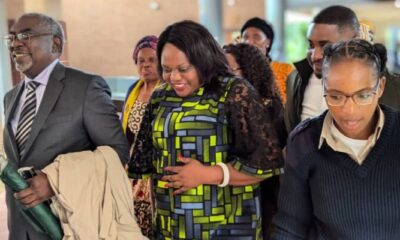

Zambia: NDC president fined K25,000 for allegedly defaming presidential aide
-
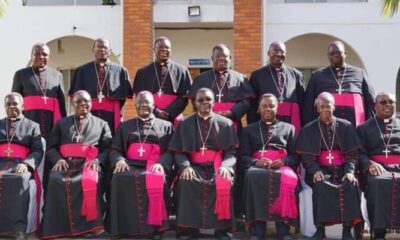

Catholic bishops in Zambia decry ‘shrinking democratic space’, hounding of opposition parties
-
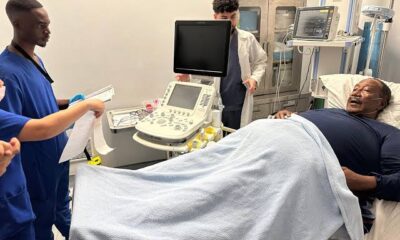

Again, Zambian court denies bail to ex-defence minister on medical grounds
-
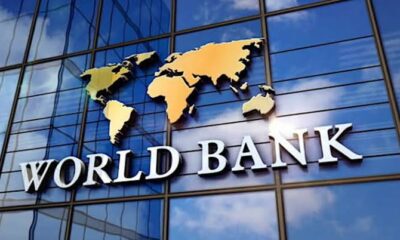

World Bank pledges $3b to support Zambia’s development goals
Behind the News
Behind the News: All the backstories to our major news this week
Published
1 month agoon
October 18, 2024
Over the past week, many important stories from around the African continent were published, and we served you some of the most topical ones.
Here is a rundown of the backstories to some of the biggest news in Africa that we covered during the week:
Another look at Africa’s debt crisis
Conversations around Africa’s public debt were on the table during the week as Achim Steiner, administrator of the United Nations Development Programme, stated on Monday that the world’s poorest countries were unable to meet sustainable development targets because they had to prioritise debt payments over investments.
Addressing a gathering in Hamburg, Steiner asserted that the world financial crisis was impeding countries’ ability to accomplish the objectives, which include eradicating hunger and poverty, increasing access to healthcare and education, providing sustainable energy, and protecting biodiversity.
Since the COVID-19 pandemic’s pervasive effects on economies, the majority of the continent’s nations have suffered with both internal and international debt; yet, few have achieved much in the fight for debt restructuring under the G20 framework.
Numerous African nations, including Egypt, Tunisia, Nigeria, Ghana, Zambia, and others, are struggling with significant foreign debt. Together with Zambia and Ghana, Ethiopia will be a part of a thorough restructuring known as the “Common Framework.”
At the opening ceremony of the annual African Union summit in Ethiopia last year, UN Secretary-General Antonio Guterres made the case for changes to the international financial system’s structure to better meet the requirements of developing nations.
Africa’s whole external governmental debt as of 2021 was 726.55 billion USD. The amount of foreign public debt increased from 696.69 billion dollars in comparison to the previous year.
Concerns are being raised by the rising debt levels in Africa, which could not only hinder economic growth but also make repayment nearly difficult for many of these nations. This begs an important question: When does debt stop being beneficial and instead start to negatively impact a nation’s economic performance?
Kenya remains committed to Haiti, but what does it stand to gain?
Kenya will support an international anti-gang effort in Haiti next month by dispatching an additional 600 police officers there. Haiti’s prime minister was in Kenya to expedite the deployment of the military.
At least eleven countries have pledged to send more than 2,900 soldiers to participate in the Multinational Security Support (MSS), led by Kenya.
Kenya, whose participation in international peacekeeping missions is longstanding, declared earlier this year that it would be deploying 1,000 police personnel, citing as a starting point its assistance to a bordering country.
Approximately 600,000 individuals have been internally displaced due to gang conflict, and hundreds of thousands of aspiring migrants have been deported back to Haiti, where approximately 5 million people are facing extreme famine. October marks the end of the mission’s first 12-month term. As gang violence worsened in 2022, Haiti turned for the first time to foreign assistance.
Nevertheless, it failed to identify a leader prepared to assume the helm and numerous foreign governments were reluctant to back the unelected administration in the desperately poor nation.
Kenya gains significant political value by sending its troops to Haiti on the international scene. Kenya has gained international recognition as a trustworthy ally that is eager to assist other nations. The mission opens up various opportunities. Prior to deployment, Kenyan law enforcement forces will receive specialist training and equipment. In the long term, this will increase the force’s capacity. Of course, there are monetary rewards as the participating nations receive allocations of resources. Because troops will receive additional pay, officers are very interested in being deployed overseas.
Cameroon: ‘Healthy’ Biya remains out of sight
Cameroon’s president, Paul Biya can now be likened to the proverbial cat with nine lives as the 91-year-old has remained “healthy” following latest reports of his death during the week. Rumours have been circulating about Cameroonian President Paul Biya’s possible death in a military hospital in France due to his extended absence. This rumour stems from Biya’s prolonged absence following the September China-Africa Summit when he was anticipated to head back to Cameroon almost away.
As of November 6, 1982, Biya, who is 91 years old, has been in office for 42 years. He is the oldest head of state in Africa, the longest-lasting non-royal national leader worldwide, and the second-longest serving president overall. According to rumours, Biya’s oldest son Franck Emmanuel Biya may be named as his replacement for “continuity” in France.
Since its political independence from France and Britain in the early 1960s, Cameroon has only had two presidents. The country is currently dealing with two serious crises: a deadly Boko Haram insurgency in the north and a separatist conflict that has claimed thousands of lives.
President Biya is one of several long-serving African leaders, including Yoweri Museveni of Uganda, who has been in office since 1982, and Teodoro Obiang Nguema Mbasogo of Equatorial Guinea, Rwanda’s Paul Kagame is also gradually evolving into the group.
Things get tougher for embattled Kenyan Deputy President
During the week, the deputy president of Kenya was impeached by the National Assembly due to charges of corruption and abuse of power. In a vote held Tuesday night, lawmakers decisively decided to remove Rigathi Gachagua from office. The Senate will now decide what will happen to the deputy president.
Parliament adopted a proposal to remove Kenya’s deputy president from office, and on Wednesday, the matter was brought to the Senate for consideration. The National Assembly heard a nearly ninety-minute defence of troubled deputy president Rigathi Gachagua and his allies prior to the vote.
A surge of protests targeting President Ruto’s government has been occurring in Kenya over the last four months due to accusations of corruption made by certain lawmakers and government officials. High taxation and the parliament’s purported inability to act independently of the president were other issues that Kenyans objected to. Gachagua refutes the accusations made by certain lawmakers, who claim that the deputy president assisted in planning rallies against the government.
He supported Ruto in his election victory in 2022 and assisted in obtaining a sizable portion of the vote from the populated central Kenya region. Gachagua, however, has mentioned feeling marginalised in recent months, despite extensive claims in the local media that he and Ruto have strained political ties.
After widespread protests over unpopular tax increases in June and July that claimed more than 50 lives, Ruto sacked the majority of his cabinet and appointed members of the main opposition.
Gachagua infuriated many in Ruto’s coalition by comparing the government to a business and implying that people who supported the coalition had first claim to development projects and jobs in the public sector. Ruto has not yet publicly commented on the impeachment proceedings.
Behind the News
Behind the News: All the backstories to our major news this week
Published
2 months agoon
October 3, 2024
Over the past week, many important stories from around the African continent have been published, and we have served you some of the most topical ones.
Here is a rundown of the backstories of some of the biggest news in Africa that we covered during the week:
Musings on CBN rates across Africa: Ghana, Nigeria, and South Africa
During the week, many African countries announced monetary policy decisions. The Central Bank of Nigeria decided unanimously on Tuesday to raise its benchmark interest rate by an additional 50 basis points, to a new record high of 27.25%. This is the sixth hike in a row this year. The decision was made in an effort to reduce inflation, strengthen the naira, and draw in capital. Governor Olayemi Cardoso reaffirmed the bank’s commitment to controlling inflation and underlined how several rate hikes have contributed to its moderation.
Nigeria’s West Africa neighbour followed suit on Friday as the Bank of Ghana reduced its benchmark monetary policy rate by 200 points to 27% at a normal meeting. With inflation having slowed and disinflationary pressures mounting, this is the first decline in eight months and the steepest since March 2018. August 2024 saw a fifth consecutive month of decline in Ghana’s annual consumer inflation, which was still much higher than the central bank’s medium-term target range of 6% to 10%. The country’s annual inflation rate dropped to a nearly two-and-a-half-year low of 20.4% from 20.9% in July.
A week prior, as anticipated, the South African Reserve Bank decreased its benchmark interest rate by 25 basis points to 8% after holding seven consecutive meetings at a 15-year high of 8.25%. As price pressures decreased, the SARB is loosening policy for the first time since the epidemic in 2020
As monetary varying shifts across the continent continue, African nations are still facing numerous severe shocks and significant structural challenges, such as rising food and energy prices brought on by geopolitical tensions like Russia’s invasion of Ukraine, climate issues that impact agriculture and energy production, and ongoing political instability.
Africa’s real GDP growth slowed to 3.1% in 2023 from 4.1% in 2022 as a result of this difficult climate. With growth predicted to reach 3.7% in 2024 and 4.3% in 2025, the economic picture is projected to improve going ahead, underscoring the resilience of African countries.
Zambia and its post-drought plans
Zambia’s finance minister, Situmbeko Musokotwane stated on Friday that the nation intends to quickly recover from its worst drought in living memory and cut its budget deficit in half the following year.
The minister stated in a budget address that the copper producer hopes for a 6.6% growth in 2025, as opposed to a projected 2.3% increase in 2024. The country is aiming for a speedy recovery. as the government crop assessment data shows that over nine million people are affected in 84 of the 117 districts after suffering through the driest farming season in over forty years, which has led to considerable crop losses, an increase in livestock deaths, and worsening poverty,
Real GDP increased gradually between 2022 and 2023, from 5.2% to 5.8%. The supply side was driven by mining and quarrying, wholesale and retail commerce, and agriculture; the demand side was driven by consumer and business spending. Food prices, transit expenses, and the nominal exchange rate are the key drivers of inflation, which is expected to remain elevated and reach 11.0% and 10.9% at the end of 2022 and 2023, respectively.
The economic challenges faced by Zambia are exacerbated by the drought, especially when considering its debt load. Its debt restructuring talks under the G20 Common Framework have progressed far more slowly than was originally anticipated when the Common Framework was first proposed.
In 2017, Zambia was placed under debt distress, and as a result, non-concessional lending from multilateral development banks was discontinued. It’s possible that by overestimating sovereign risks, the main credit rating firms exacerbated the debt crisis and dealing with a post-drought crisis might just be another “too high hurdle”
As the World Bank and Uganda LGBTQ saga continues
The World Bank is taking more action in support of Uganda’s LGBTQ community. The global lender announced on Wednesday that it is implementing steps to guarantee that lenders to Uganda are not subjected to discrimination due to a severe anti-gay law. According to a World Bank representative, both new and continuing projects would be subject to the procedures, which also include an impartial monitoring system to guarantee compliance.
Same-sex partnerships are forbidden and punishable by life in prison; similarly, anyone convicted of “aggravated homosexuality” faces the death penalty. The Anti-Homosexuality Act (AHA) was passed by Uganda, a largely conservative nation, in May of last year and it has led to considerable Western censure and US penalties.
Other than Uganda, several African nations have strict laws that discriminate against individuals who identify as LGBTQ. Hakainde Hichilema, the president of Zambia, issued a warning in March to supporters of the LGBTQ movement to stop endorsing homosexuality. He also asked that Zambia “maintain laws that abhor alien orientations like gayism and lesbianism.”
South Africa, which has a constitution that forbids discrimination based on sexual orientation, was the first and only African nation to legalise same-sex marriage in 2006. Some African nations, such as Angola, Mozambique, Botswana, Lesotho, Mauritius, and Seychelles, have laws that are favourable to the continent’s population but Uganda appears to be unbothered or tempted despite the many causes and costs of its anti-gay stand.
Ahead of Tunisia’s presidential election
During the week, another Tunisian presidential candidate Ayachi Zammel was convicted and sentenced to six months imprisonment for using “fraudulent certificates” as opposition voices in the North African country continue on attack as President Saied positions himself for what is likely to be a reelection, as all but one of the opposition candidates are either incarcerated or have had their eligibility ruled invalid by the Tunisian electoral commission.
On September 19, a third candidate who had received the election commission’s approval was sentenced to 20 months in prison. Saied, who is currently running for reelection for a second five-year term, was originally elected in 2019 as an anti-establishment candidate who pledged to combat poverty and eradicate corruption. However, in 2021 he declared that he would rule by decree after overthrowing Mohamed Ennaceur and the elected parliament, a move denounced as a coup by the opposition and the international community.
Additionally, he has deployed more oppressive strategies, which may indicate that he is not confident in his ability to win with conviction. His severe actions could indicate a new stage in Tunisia’s democratic backsliding and foreshadow more crackdowns and turmoil during an inevitable second term.
Meanwhile, concerns exist over potential voting turnout as well. Under Saied, Tunisia has conducted three elections, with dismal voter turnout in each. Less than one-third of voters cast ballots in favour of a new constitution that solidified Saied’s power and overthrew the 2014 charter in July 2022. After Saied dismissed the previous legislature in December 2022, only 11% of voters cast ballots for new members of parliament, which is among the lowest turnout percentages ever recorded in a national election worldwide. The next December, Saied called elections for a new second house of parliament, repeating this dubious performance.
EDITOR’S PICK


Ghana partners with The Gambia to provide free roaming services
Ghana and The Gambia are in the process of launching free roaming services that will enhance a West African connectivity....


Zambia: APP leader lampoons PF over pledge to reverse forfeited properties
Leader of one of Zambia’s opposition parties, Advocates for People’s Prosperity (APP), Mwenye Musenge, has criticised the Patriotic Front (PF)...


Ghanaian winger Fatawu out for season with ACL injury
Ghana and Leicester City winger, Abdul Fatawu, has been ruled out of the rest of the EPL season after suffering...


DRC authorities arrest six over break-in at Lumumba’s Mausoleum
Police in the Democratic Republic of Congo (DRC) say six people have been arrested over a break-in and vandalism at...


Finnish court imprisons Nigeria’s Simon Ekpa for aiding terrorism
Simon Ekpa, a Nigerian separatist leader based abroad, has been placed under detention by the Päijät Häme District Court...


Nigerian Senate confirms influx of terrorists from Mali, Burkina Faso into the country
The Nigerian Senate has raised the alarm over the influx of terrorists from Mali and Burkina Faso who operate in...


Tanzania to host 6th Ocean Innovation Africa summit in February
Dar es Salaam, Tanzania, has been selected to host the sixth edition of the Ocean Innovation Africa (OIA) summit from...


Miss SA opens up on why she withdrew from Miss Universe pageant
Reigning Miss South Africa 2024, Mia le Roux, has opened up on the reasons behind her withdrawal from the Miss...


SA football legend Lucas ‘Masterpieces’ Moripe passes away
South African football legend, Lucas “Masterpieces” Moripe, has passed away at the age of 71 after a long battle with...


Wanted Zambian MP who escaped from prison custody captured in Harare
A fugitive Zambian Member of Parliament (MP), Emmanuel Banda, who escaped from custody at the Chipata Prison in Eastern Province...
Trending
-

 Metro1 day ago
Metro1 day agoWanted Zambian MP who escaped from prison custody captured in Harare
-

 Sports1 day ago
Sports1 day agoSA football legend Lucas ‘Masterpieces’ Moripe passes away
-

 Culture1 day ago
Culture1 day agoMiss SA opens up on why she withdrew from Miss Universe pageant
-

 Politics1 day ago
Politics1 day agoUgandan opposition politician abducted, wife says


